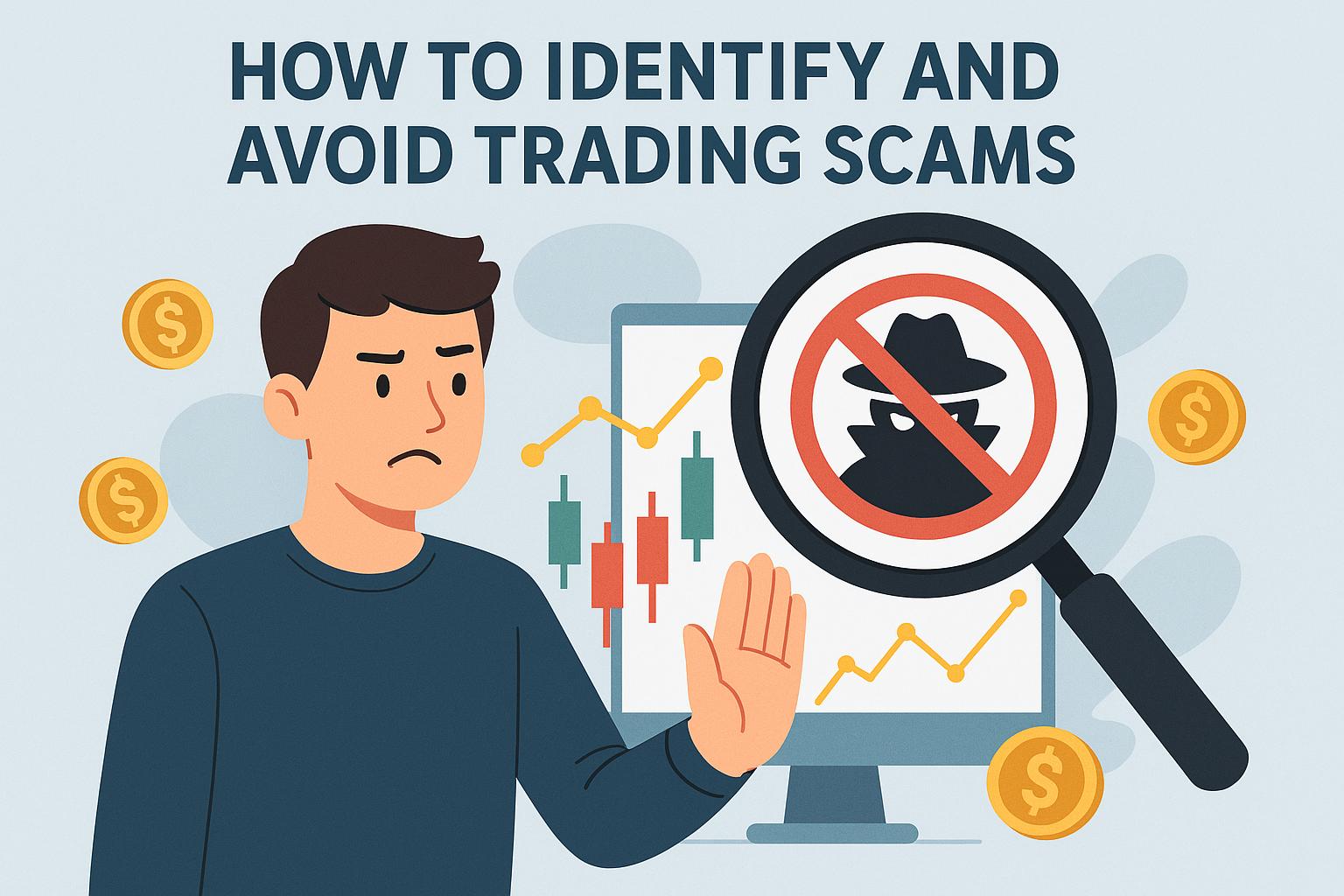
How to Identify and Avoid Trading Scams
Understanding Trading Scams
Trading scams are deceptive schemes that manipulate individuals into allocating their money towards financial products or platforms that are either illegitimate or misleading. Such schemes can severely impact both novice and seasoned traders, often resulting in significant financial losses. It’s imperative to understand the characteristics of these scams, which is the first step in safeguarding oneself from falling prey to them. Knowledge is an essential tool for protecting personal and financial interests.
Common Types of Trading Scams
There are several prevalent trading scams that investors must be wary of to protect themselves from potential financial harm.
Ponzi Schemes
Ponzi schemes are one of the oldest and most notorious forms of financial fraud. The scam promises exceptionally high returns with little to no risk. It operates by generating returns for earlier investors using the capital of more recent investors. This method is unsustainable and eventually collapses when it fails to attract new investments. Ponzi schemes thrive on the trust of the participants and flourish in areas where there is little financial literacy.
Pump and Dump Schemes
This scam involves artificially inflating the price of a particular stock through false or misleading statements. The fraudsters entice investors to buy the stock, driving up its price. Once the price has been sufficiently inflated, these fraudsters sell off their shares at a significant profit. This action typically leads to a sharp drop in the stock price, leaving other investors with significant losses. Such schemes are common in poorly regulated markets where manipulation is easier due to low market liquidity.
Forex and Cryptocurrency Frauds
The foreign exchange (Forex) and cryptocurrency markets are particularly attractive to scammers due to their decentralized nature and lack of stringent regulation. Fraudsters in these markets may create fake trading platforms or make extravagant promises of high returns in a very short time frame. Investors are often lured by the potential of enormous profits but may end up losing their capital to scam operators who disappear with the funds.
Warning Signs of Trading Scams
Recognizing trading scams can be challenging due to the sophisticated methods employed by scammers, but specific warning signs can alert investors to potential risks.
Unrealistic Returns
Any trading opportunity that promises exceptionally high returns with minimal or no risk is likely a scam. Legitimate investment opportunities always involve some level of risk because financial markets are inherently volatile. Offers that appear too good to be true should be approached with caution.
Lack of Regulation
One of the critical checks before investing is determining whether the trading platform or broker is under the oversight of a recognized regulatory authority. Regulation implies that the firm adheres to specific standards designed to protect investors. Unsanctioned platforms are usually a red flag as they can operate without accountability.
High-Pressure Sales Tactics
Scammers often employ high-pressure sales tactics, urging potential investors to make quick decisions without adequate time for consideration or research. They may convey a false sense of urgency by claiming the offer is limited or time-sensitive. It’s crucial to resist these pressures and conduct due diligence before making any commitments.
Steps to Avoid Trading Scams
Adopting proactive measures is fundamental in avoiding trading scams and protecting your investments.
Conduct Thorough Research
A comprehensive investigation of the trading platform or product is necessary. This includes looking for reviews from multiple sources, extracting information from credible fintech websites, and verifying the regulatory status of the firm. Critical assessment of user feedback can also provide insight into the platform’s authenticity and reliability.
Verify Credentials
Ensure that brokers or advisory firms are registered with relevant financial authorities. Most countries maintain a database of registered entities operating in the financial sector. Accessing these records can confirm the legitimacy of the brokers you consider engaging with.
Avoid Sharing Personal Information
Exercise caution when sharing personal or financial details. Only provide such information after verifying the legitimacy of the organization you’re dealing with. Secure communication channels and privacy policies should also be evaluated before divulging sensitive information.
Report Suspected Scams
In any situation where you suspect a scam, it’s vital to report it to the appropriate financial regulatory body. This not only helps to protect your own interests but also aids in preventing others from falling victim. Authorities like the U.S. Securities and Exchange Commission (SEC) and the Commodity Futures Trading Commission (CFTC) offer platforms for reporting fraudulent activities. They play a crucial role in surveillance and enforcement against trading scams.
Conclusion
The prospect of high returns can indeed be alluring, particularly in fast-paced financial markets. However, it is essential to remain vigilant and well-informed to navigate these environments safely. By identifying warning signs and taking preventative steps, investors can significantly reduce the risk of falling victim to trading scams. In the world of trading, due diligence and informed decision-making should take precedence over the temptation of quick profits. An informed trader is a protected trader, and investing the time to understand these scams is a critical investment in itself.
This article was last updated on: September 14, 2025